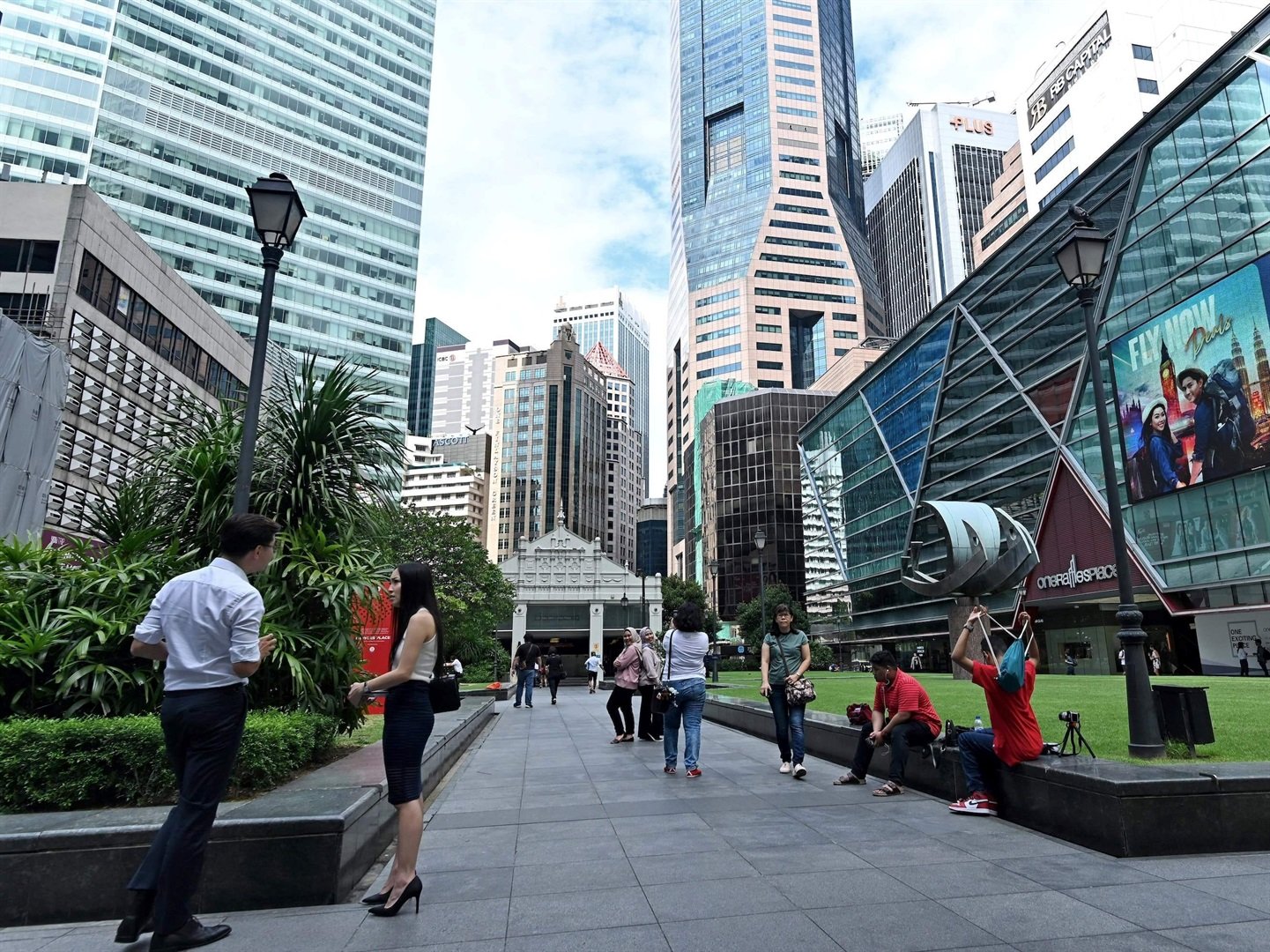[ad_1]

Singapore is set to launch its first electric cargo vessel in the fourth quarter.
Roslan Rahman/AFP/Getty Images
Singapore’s first electric cargo vessel is due to start sea trials and launch in the fourth quarter, according to Yinson Green Technologies, part of a consortium chosen by the city-state to help electrify marine craft.
The Hydromover, developed by the Goal Zero consortium, is near completion, YGT Chief Executive Officer Eirik Barclay said in an interview in Kuala Lumpur this week. YGT will also be introducing an electric vessel for transferring crew — developed with Norwegian startup Lift Ocean AS — by the end of the year, Barclay said. That craft is called the Hydroglyder.
“We want to be part of all associated services with clean electric vessels, starting with Singapore,” Barclay said. YGT is a subsidiary of Malaysia-listed Yinson Holdings. Yinson shares have risen about 3% this year.
With the local port authority requiring all harbor craft to be fully electric or be able to run on B100 biofuels or net zero fuels from 2030, oil giant Shell launched Singapore’s first fully electric passenger ferry in May to transport workers to its refinery at Pulau Bukom.
The Goal Zero consortium is led by Singapore-based SeaTech Solutions International, designer of the Hydromover, which has capacity to carry 25 tons of cargo and has a battery that can be swapped in minutes when depleted, according to YGT’s website. YGT will operate the harbor vessel, using it for commercial operations under its recently launched MarinEV unit.
MarinEV will offer vessel leasing, servicing, maintenance and products to help the maritime industry’s transition to net zero.
Singapore provided S$9 million ($6.6 million) in funding in 2021 to Goal Zero and two other consortiums led by Keppel FELS. and Sembcorp Marine to develop electric vessels. Keppel aims to establish an electric vessel supply chain by 2025, while Sembcorp hasn’t revealed a completion target.
“We are seeing a dramatic electrification of all modes of transport, so we started by focusing of the electrification of the marine area,” said Barclay, who headed Yinson Holdings’ offshore production business before becoming YGT CEO in January.
YGT also this month started RydeEV, an electric bike leasing business in Malaysia with swappable battery technology, and in the fourth quarter it will launch DrivEV in Malaysia, a leasing business for electric vehicles. It has already signed fleet-leasing agreements with Pos Malaysia and UEM Edgenta.
“In Southeast Asia there are 250 million motorbikes,” Barclay said. “Over the next 10 years, all of those are going to become electric. So it’s an absolutely incredibly large market space to be playing in.”
Through its charging business ChargEV, YGT also owns 379 EV charging stations in Malaysia, making it the largest operator in the country. It has started operations in Singapore and aims to have 10 stations by the end of the year.
[ad_2]
Source link
